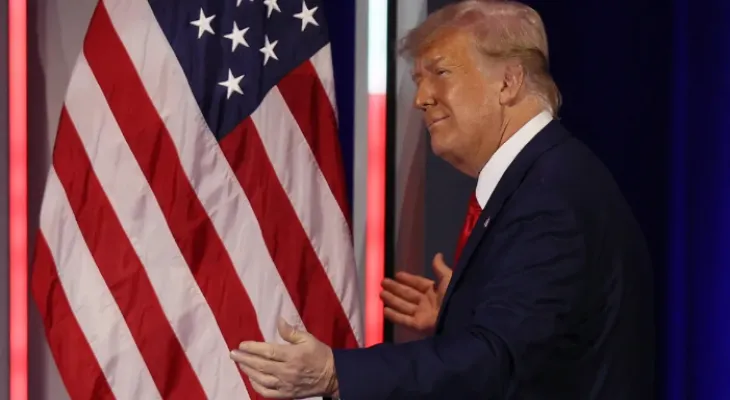Search here
Newspaper
Search here

Arab Canada News
News

Published: June 20, 2024
American political writer Jacob Heilbrunn, editor of the American magazine National Interest, believes that what former National Security Advisor Robert O'Brien published in the American magazine Foreign Affairs regarding the foreign policy Trump would follow if he wins the presidency, which he stated would witness a "return to Jacksonian realism," is a call to adopt the policies of former President Andrew Jackson.
Heilbrunn says in an analysis published by National Interest that O'Brien is actually seeking to wage war on the spirit of Trump's foreign policy. O'Brien uses the expression "America First" to promote what seems to be a new conservative trend—an extremely hawkish foreign policy that does not include any reference to promoting democracy. This is a policy that will undoubtedly support Israel, push Europe to bear the burden of supporting Ukraine, wage a new Cold War against China, and strive to topple the regime in Iran.
O'Brien presents Trump as someone akin to Ronald Reagan, who will seek to revive American power both domestically and internationally. He views China as the main threat to America, just as the Soviet Union was during the Cold War era. O'Brien fully embraces Reagan's doctrine of "peace through strength," declaring that under Trump's wise leadership, America could once again become the "best last hope for humanity."
Through his praise of Trump, O'Brien rejects the idea that the former president is fully inclined toward NATO or isolationist—he believes that the truth is the opposite, as Trump supported NATO and alliances in Asia. Trump was not attempting to alienate America's allies but was simply adhering to an objective view of America's situation abroad, which had suffered significant mismanagement during President Barack Obama's term.
O'Brien believes that after four years of President Joe Biden’s administration, the situation has become worse than it was before, stating, "This swamp of American weakness and failures calls for Trump to restore peace through strength."
O'Brien calls for an increase in American military power in Asia to confront China, including strengthening the Philippine, Vietnamese, and Indonesian armed forces, as well as relocating all Marine Corps weapons to the Pacific region. Washington must also launch an economic war by completely ceasing its economic ties to China.
O'Brien sees a serious flabbiness concerning America's objectives in the Middle East. He believes that the source of the hostilities between Hamas and Israel lies in Tehran. According to O'Brien, a return to maximum pressure against Iran and granting Israel full approval to crush Hamas would achieve peace and stability in the region.
Similarly, O'Brien believes that a swift end to the Ukraine war is possible. He says Trump’s position would be to continue supplying Ukraine with lethal weapons, funded by European countries, while keeping the door open for diplomacy with Russia.
Heilbrunn states that William Roger, president of the American Enterprise Institute and a former Trump nominee for the U.S. ambassador position in Afghanistan, sees O'Brien as an important voice in discussing the foreign policy of the Republican Party. He rightly defends Trump's record on foreign policy, especially his commitment to avoiding new wars and ending "our endless wars in the Middle East."
However, Roger expressed convincing reservations about the conflict with China, as he believes that while China represents the most significant strategic challenge to America, the call for decoupling is neither realistic nor wise. This would harm both American consumers and producers. America’s stance toward China should be determined intelligently and should not be a retrogressive position or a second Cold War. Roger believes that Trump himself will "deal with China wisely during his second presidency."
In concluding his analysis, Heilbrunn asks: A second Cold War or a new realism? Or "America First"? Or "isolationism"? Now, O'Brien has fired the first shot in a protracted battle over Trump's foreign policy.
Comments